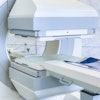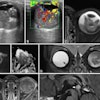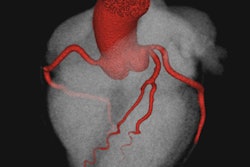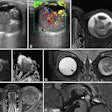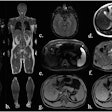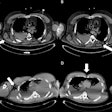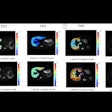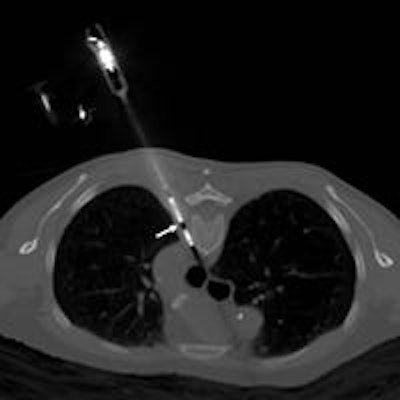
Every acute hospital has a duty to ensure it has formal arrangements to secure the provision of elective and emergency interventional radiology services, but this is not happening at present and patients are being put at risk, according to new U.K. guidelines.
There has been a gradual improvement in providing 24-hour interventional services over the past few years, noted the authors of the 16-page document published this month by the Royal College of Radiologists (RCR) under the title of Standards for providing a 24-hour interventional radiology service. However, due to a lack of resources, out-of-hours service provision remains patchy and urgent action is required, they cautioned
 Dr. Richard FitzGerald.
Dr. Richard FitzGerald.For the safety of patients, National Health Service (NHS) trusts (i.e., hospital groups) delivering acute care should have robust procedures in place to ensure emergency services are available 24/7, and interventional radiology is no exception, the authors continued. They urge all managers to recognize the essential role of interventional radiology, set aside adequate resources, be clear and transparent about local arrangements, and decide what can and can't be provided both in and out of hours, as well as make arrangements.
"Many radiology departments still have either no interventional on-call rota, or informal arrangements without adequate resource," noted RCR Vice President Dr. Richard FitzGerald in the foreword to the document. "This suggests that there is an unmet need for intervention in many hospital trusts. In addition, only a small number of radiology departments report formal lines of referral to other trusts ... such unclear arrangements are a potential risk to patients and put unfair pressure on individual radiologists and certain hospital trusts."
There must be clarity about the services that can and cannot be offered by individual departments and clear pathways for referral to ensure a better resourced and collaborative national interventional radiology service is established, he pointed out.
Specific recommendations
The report lists the following 12 standards that must be met:
- Recognition that in the absence of provision of interventional radiology (IR) services, patients will be placed at risk.
- There should be clarity within the trust and among referring clinicians and service commissioners about what IR services are available and when they are available.
- Clear pathways should be in place for treating patients appropriately when the IR service is not available.
- Out-of-hours service provision should be subject to a formal sustainable rota of a 1:6 or greater frequency depending on the population covered and workload.
- There should be recognition of the resource implication of supporting a 24-hour interventional service in terms of diagnostic imaging and manpower.
- Onward referral pathways must be clear.
- All doctors are bound to adhere to the U.K. General Medical Council guidance and must comply with the principles and values set out in Good Medical Practice.
- Radiologists should not normally carry out procedures with which they are unfamiliar.
- Radiologists should recognize that ad hoc on-call rotas are not in the best interest of patients.
- It is the duty of the radiologist to report any risk management concerns to the trust's clinical governance authorities.
- Radiologists should audit local and regional provision of on-call IR services as well as their personal and unit outcomes.
"Individual radiologists, in conjunction with clinical leads or their appraiser, should keep their range of skills and routine practice under review, with the aim of balancing subspecialty expertise with the maintenance of core skills needed to provide a trust-wide emergency radiology service," the authors wrote. "Locally agreed protocols and/or guidelines for referral for emergency imaging/intervention have the potential to reduce confusion and/or disagreement in individual cases. These protocols should be evidence-based and be agreed with the local clinical governance committee and the relevant clinical teams."
The first edition of this document was published by the RCR in 2008. Much of the original content remains relevant, but RCR felt it should be updated, particularly given the publication in 2015 of revised Standards for providing a seven-day acute care diagnostic radiology service, which sits alongside the new guidelines.
To download the new guidelines for free from the RCR website, click here.
